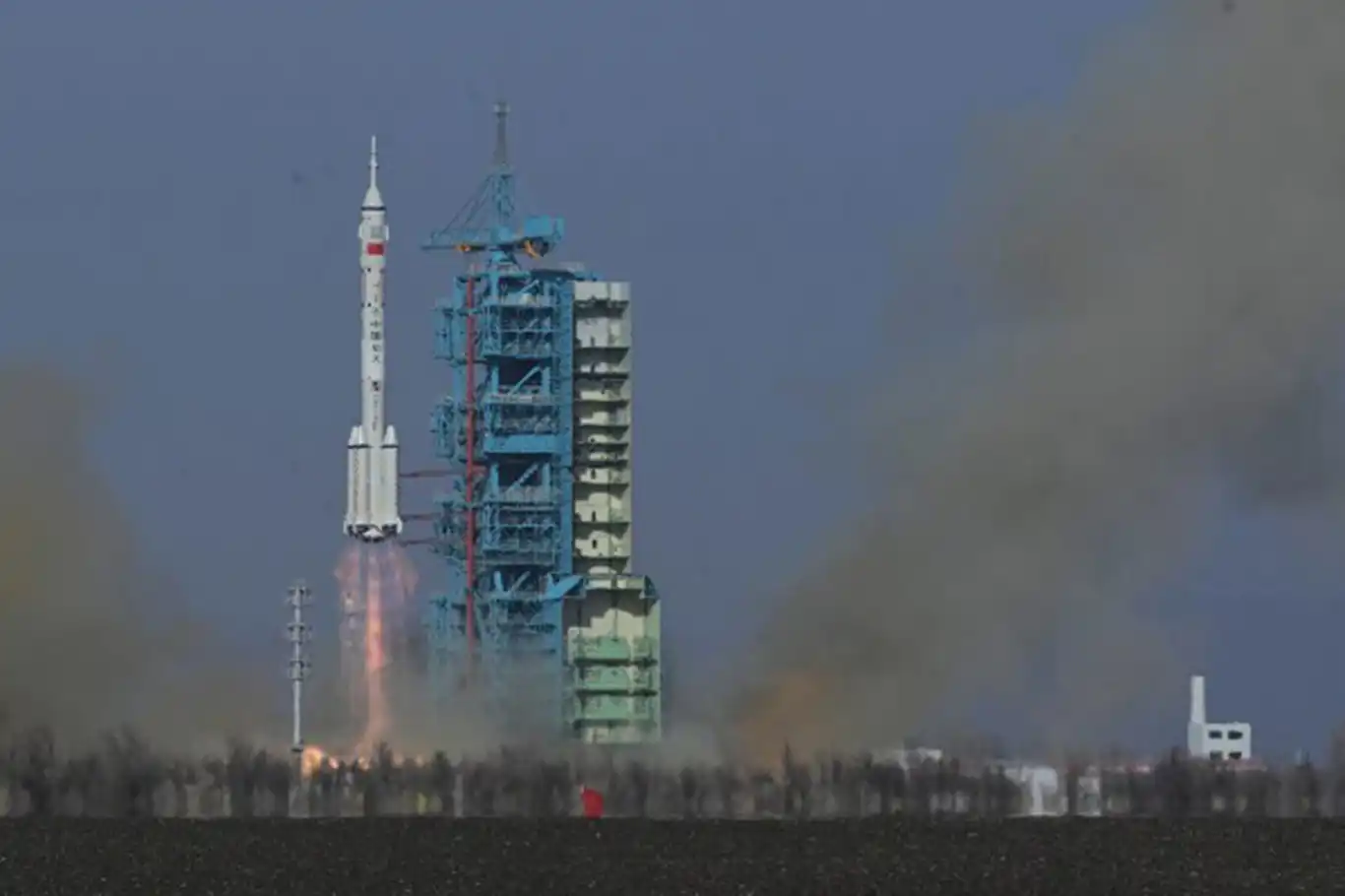China launches Shenzhou-22 spacecraft


China successfully launched the Shenzhou-XXII spacecraft on Tuesday, marking another major milestone in the country’s rapidly advancing crewed space program.
The mission—carried out from the Jiuquan Satellite Launch Center in the Gobi Desert—will deliver a new three-member crew to the Tiangong Space Station as part of China’s ongoing long-duration spaceflight operations.
The spacecraft, carried atop a Long March-2F rocket, lifted off at the scheduled time, with Chinese space authorities confirming that all systems were functioning normally and that the vehicle had entered its planned orbit. The crew is expected to dock with the Tiangong station several hours after launch.
According to the China Manned Space Agency (CMSA), the Shenzhou-XXII mission will focus on a broad array of scientific experiments, station maintenance, spacewalk preparations, and the installation of new research equipment. The astronauts will also carry out medical studies and microgravity experiments designed to support future deep-space missions.
State media emphasized that the launch reflects China’s steady progress toward establishing a fully operational, permanently crewed space station. Over the coming months, the Shenzhou-XXII team will oversee critical upgrades and continue experiments that build on the work of previous crews.
The mission is part of China’s long-term ambitions in space exploration, including future lunar missions and expanded international cooperation aboard the Tiangong station. With the successful launch, Shenzhou-XXII becomes the latest step in China’s growing presence in low-Earth orbit and its broader efforts to position itself as a leading global space power. (ILKHA)
LEGAL WARNING: All rights of the published news, photos and videos are reserved by İlke Haber Ajansı Basın Yayın San. Trade A.Ş. Under no circumstances can all or part of the news, photos and videos be used without a written contract or subscription.
SpaceX successfully launched a new Falcon 9 rocket early Sunday, sending another batch of Starlink internet satellites into orbit from Vandenberg Space Force Base in California.
A major outage at Cloudflare caused widespread internet disruption on Tuesday, affecting access to numerous global platforms including X, Facebook, Spotify, Canva, Letterboxd, OneSignal and others.
Scientists have developed the first-ever simulation capable of modeling all 100 billion stars in the Milky Way, using artificial intelligence to run galaxy-scale physics around 100 times faster than previous techniques.